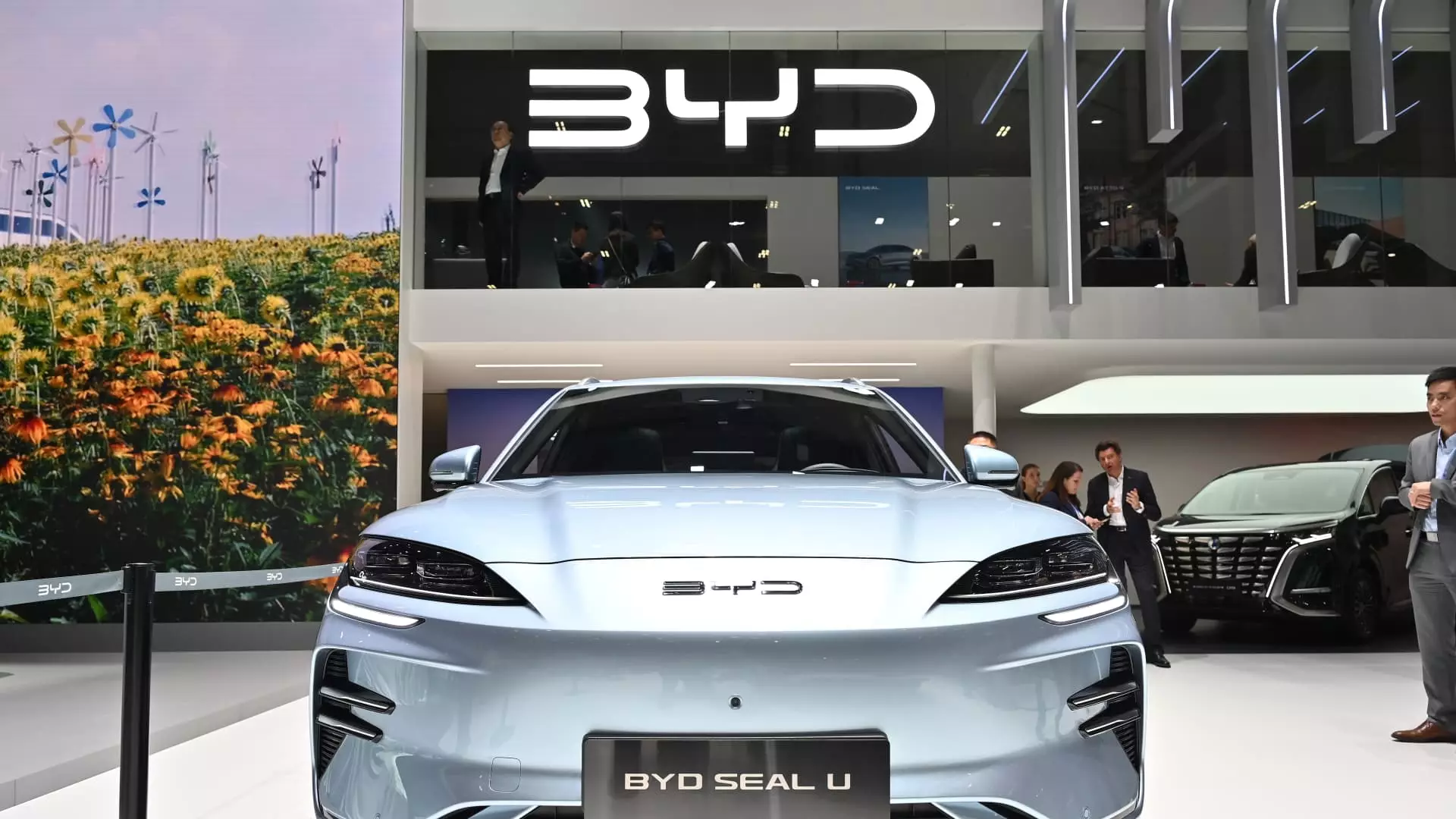The European Union has officially announced its decision to increase tariffs on electric vehicles imported from China. This decision comes after the European Commission conducted an investigation and found that Chinese producers of battery electric vehicles (EVs) benefit from what they deem as “unfair” subsidization. The new levies, which range from 17.4% to 37.6%, will take effect on Friday, affecting automakers from Chinese companies like BYD to European brands manufacturing cars in China like Tesla.
The implementation of these tariffs poses a significant challenge for Chinese automakers who have been aggressively expanding into the European market with competitively priced offerings. This move threatens the market share of many top European automakers who have been slower to adopt electric vehicle technology. The European Commission argues that these Chinese carmakers have unfairly benefitted from subsidies, giving them an unfair advantage in the market.
In response to the tariffs, automakers have expressed concerns about the potential price increases for electric vehicles in Europe. Chinese EV maker Nio has stated that they are currently maintaining prices for their vehicles sold in Europe but cannot guarantee that prices will not be adjusted in the future due to the tariffs. Similarly, Xpeng has assured customers awaiting delivery of their cars that they will be protected from price increases, but they have not ruled out the possibility of raising prices in the future.
Tesla, an American automaker with a factory in Shanghai, is also expected to be impacted by the tariffs. When the EU first announced the levies, Tesla mentioned that they would likely increase prices for their Model 3 vehicle in Europe. The specifics of the tariffs that Tesla will face have not been disclosed yet, but the EU has hinted that an individually calculated duty rate will apply to the U.S. automaker.
The tariffs imposed by the EU are provisional and will last for four months, during which EU member states will vote on definitive duties that could potentially last for five years. Chinese and EU officials have engaged in discussions regarding the tariffs, with Beijing criticizing the measures as protectionist. Chinese EV makers have reiterated their commitment to the European market, with companies like Xpeng considering establishing local manufacturing capabilities in Europe to offset some of the tariffs.
The decision to increase tariffs on Chinese electric vehicles by the European Union has stirred tensions between the two economic powers. While European automakers may benefit from the new levies, Chinese manufacturers are faced with the challenge of maintaining their competitive pricing in the European market. The future of electric vehicle trade between China and the EU remains uncertain, as both sides seek to find a mutually acceptable solution amidst ongoing discussions and negotiations.

